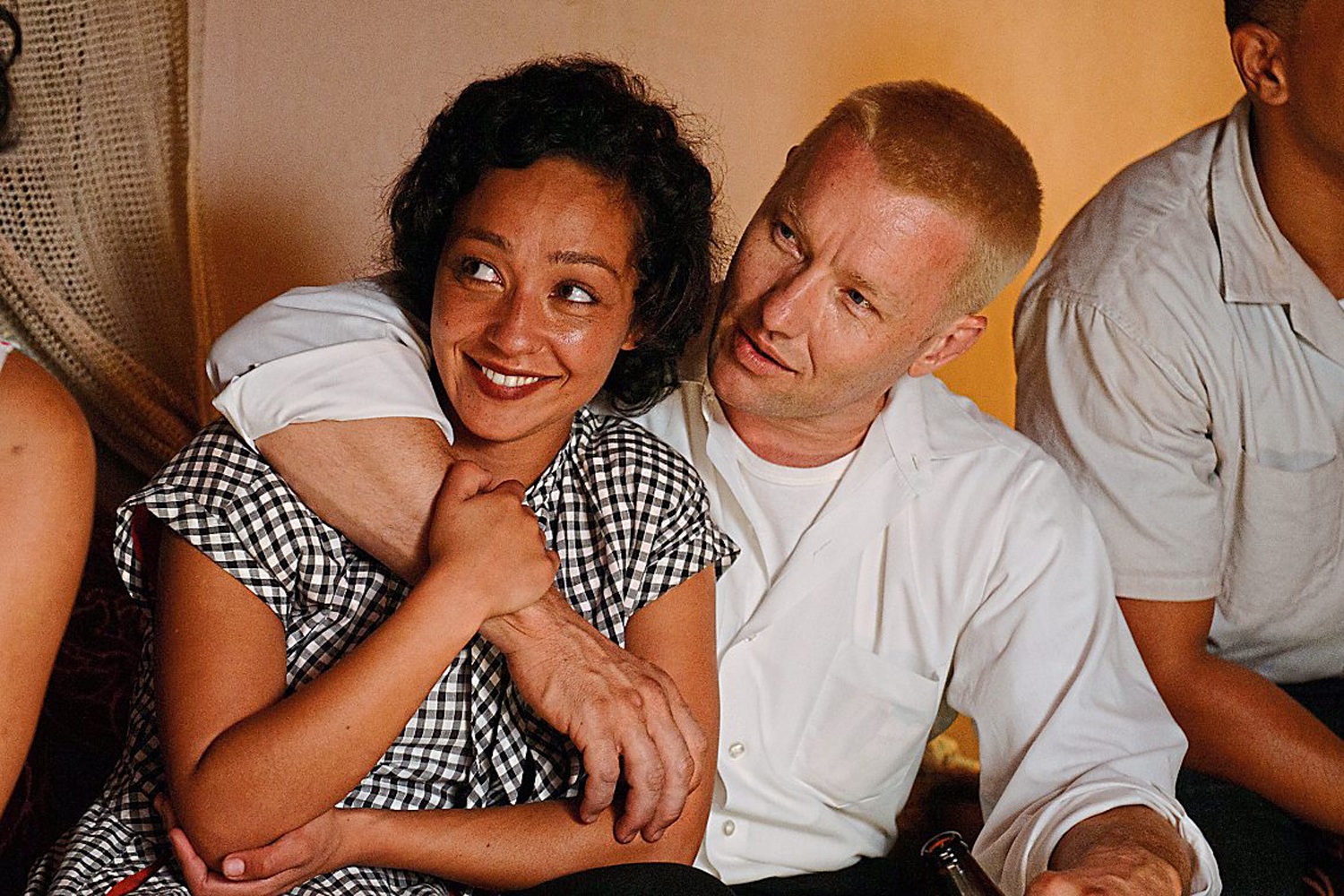A United States where ignorance has the upper hand, where leaders revel in their bigotry, where average Americans taunt each other with proud, unfiltered fury. The year is 1958—what did you think I was referring to?—a time when Richard and Mildred Loving became criminals because of their marriage. They are the subjects of Jeff Nichols’ Loving, one of those historical films that come along to remind us of the distant past. And, sometimes, of the present.
Richard was white and Mildred was black and Native American, and their home state of Virginia had laws against interracial marriage (like 23 other states at the time). The Lovings were legally married in Washington, D.C., but by returning to their home in rural Virginia, they violated the state’s grandly named Racial Integrity Act. Years passed and the Lovings eventually enlisted the aid of the American Civil Liberties Union to take up their case. It went before Earl Warren’s Supreme Court, which overturned the Virginia law in 1967. The story is stirring and infuriating, even as we look back from a 2016 vantage point that finds America far, far more enlightened than we were then, having today achieved a pinnacle of civic wisdom that speaks to our collective genius . . .
But enough irony.
Nichols, the creator of films such as Take Shelter and Midnight Special, has not shaped Loving as conventional Oscar bait. In theory, that is a bold idea. In practice, he has created a dour, mumbling tone poem that can’t even utilize the considerable talents of its lead actors, Ruth Negga and Joel Edgerton. They’re both caught in the muddy trudge of Nichols’ reluctant storytelling, which emphasizes tiny slices of life over traditional scenes. For Richard, Edgerton (the Aussie recently seen in Black Mass and The Great Gatsby) creates a complete physical performance—shoulders hunched, gaze wary, mouth tight; he manages one or two smiles, which startle us with their novelty. It looks painful for Richard to speak, let alone face a TV reporter. The wide-eyed Negga is an expressive actress, but everything is tamped down in Nichols’ grim design. A dramatic moment for the Lovings (and the history of the United States) is handled with a phone ringing and a little bit of body language. Nichols won’t stoop to something as vulgar as showing an exciting courtroom argument.
This approach has its own integrity—the movie keys its mood to this very modest, quiet couple—and I’m all in favor of telling history via unorthodox means. But the monotonous seriousness of Loving begins to grate fairly early on—true, the story itself is no laff-fest, but I’m always suspicious of movies that leave out humor, especially humor that survives even in the direst circumstances. Actually, there is humor, but Nichols keeps it walled-off, mostly in the form of the ACLU lawyers (played by comedian Nick Kroll and Jon Bass) who take up the case. They bring much-needed vitality to their scenes, and are part of the movie’s excellent casting: reliable Bill Camp (who played Brian Wilson’s dad in Love & Mercy) as a small-town lawyer, Terri Abney as Mildred’s fierce sister, and Nichols regular Michael Shannon in a small role as a Life magazine photographer.
To pull off this kind of minimalism, you’ve got to have something pulsing beneath it, and I had a hard time locating the heartbeat here. Nichols leaves out the larger frame of the Civil Rights movement in order to focus on two people who likely would’ve preferred sitting out the struggle and minding their own business. That’s one approach, and potentially a poignant one—if only the human element had a little more flesh on its bones. In the era in which Loving is set, filmmakers like Stanley Kramer (whose Defiant Ones came out, in fact, in 1958) got criticized for the way their social-issue pictures would turn characters into cardboard cutouts for Justice and Truth. In Loving, the characters are cardboard cutouts for Just Plain Folks. I’m not sure that’s an improvement. Loving, Rated PG-13. Opens Fri., Nov. 18 at Guild 45th.
film@seattleweekly.com






